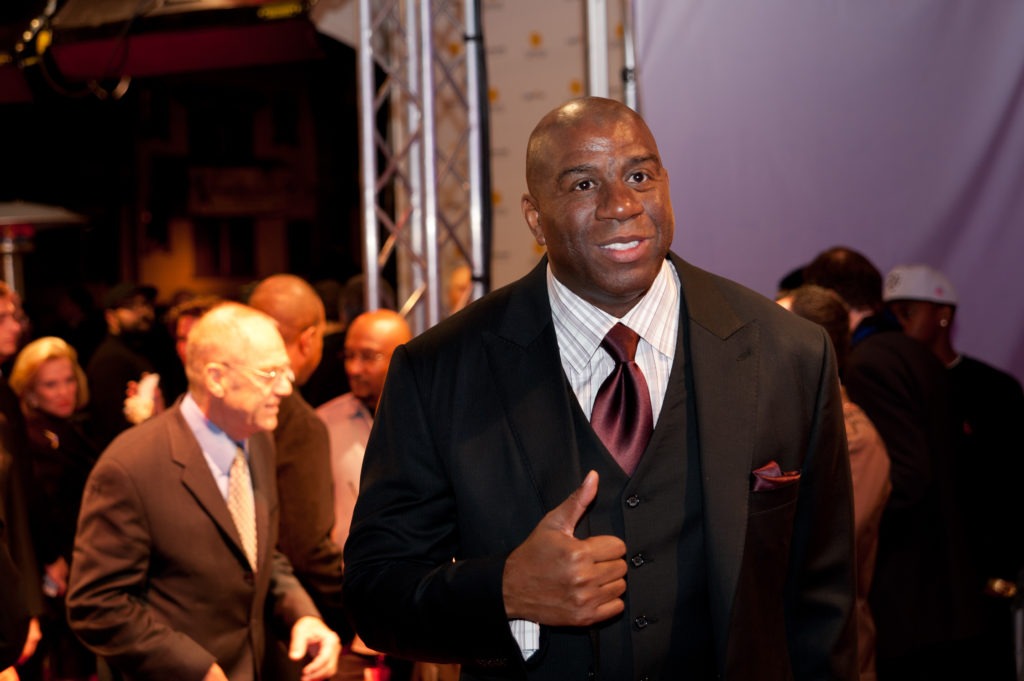
The NBA’s spectacular showcase is now in the history books, as its players get ready for the second half of the season. In case you somehow missed it, this is the only basketball game all year where the over/under is set at just above 300 points. And of course, the “over” came out on top, as Team Giannis wass nipped by Team LeBron, 157-155.
The game was played in memory of Kobe Bryant and his daughter, Gianna, both whom tragically lost their lives last month in that fateful helicopter crash. And in a new scoring experiment, the two teams raised hundreds of thousands of dollars for local Chicago charities, where the game was played.
As is always the case, the NBA All-Star Game attracted celebrities from inside and outside the NBA, including Lakers royalty who came to watch the game but to also pay their respects to the fallen superstar.
Earvin Magic Johnson was one of them. He opened the game with poignant words about Kobe Bryant, as well as David Stern, former NBA commish who passed away on New Years Day, and shared his thoughts on Twitter:
Kobe, we miss you and I hope we made you proud.
— Earvin Magic Johnson (@MagicJohnson) February 17, 2020
Easily one of the top three Lakers players of all time – and it’s an impressive group of NBA giants – Magic grew up in Lansing, Michigan, brought the Michigan State Spartans a championship, and had a multi-ring career with the Lakers. But it’s also noteworthy he’s one of the league’s more successful graduates, building an amazing post-NBA career in business
Magic Johnson Enterprises is more than 30 years old, and has made major investments in urban areas with businesses geared to its local residents.
The company invests, owns, or has owned myriad businesses, including movie theaters, Burger Kings, and at one time, more than 100 Starbucks Coffee locations.
Next week, I’ll be addressing the Barrett Sports Media Summit in New York City. For me, being on stage at prestigious sports gathering checks off a bucket list item. Information on the event is here.
Sure, I have always been passionate about music – especially Rock and Alternative – but I’ve easily been to as many sporting events as I have concerts in my life.
And regular readers of this blog know I never miss an opportunity to make a radio/sports analogy. That’s not just because of my love for both, but also because the world of sports has many attributes and traits that translate very nicely to radio.
If you think about Magic not as a hoopster, but as a successful radio personality who made the transition to the business world, you understand why his approach is one worthy of emulating.
I recently read a guest story in Entrepreneur by author Craig Ballantyne who talked about Magic’s “post-game strategy.” Several of his points translate very nicely to radio personalities – and I’ve added a handful of my own.
1. Know your market
When Magic started his business journey, he studied his market well. But like many of us, he had a built-in advantage. His pre-famous self, his family, and his friends were all the target audience.
He learned (but always knew) they loved going to movies and malls, so those investments became his building blocks. Ballantyne tells the story of how Magic convinced Starbucks CEO Howard Schultz to partner on stores in urban areas.
But Magic used his innate knowledge of his target to ensure his 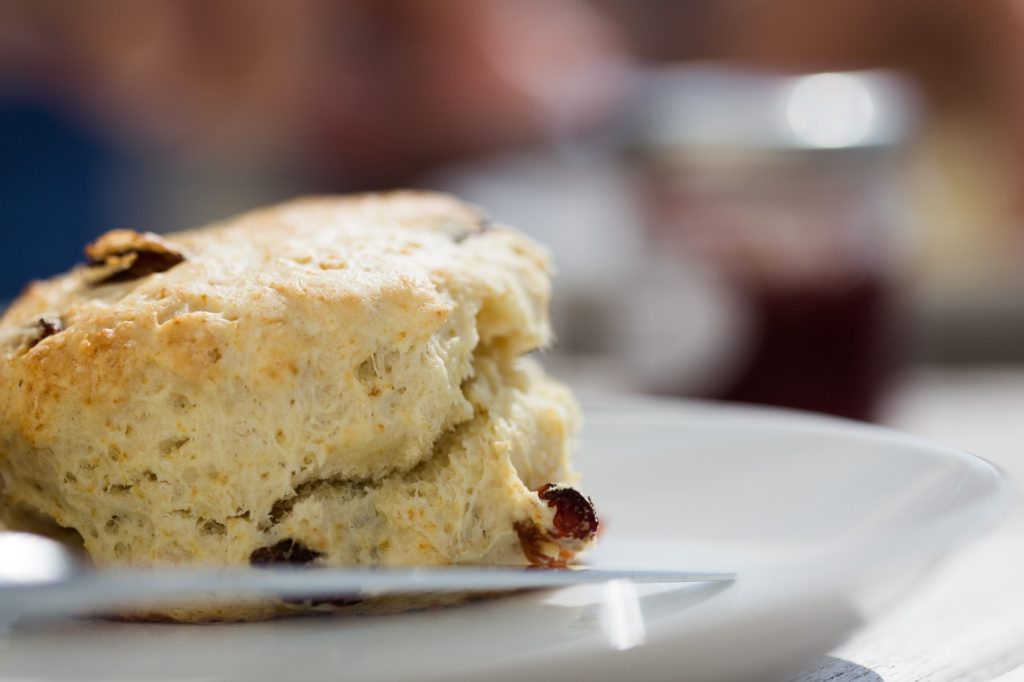 Starbucks stores truly catered to an urban audience. Magic was one of 9 kids from a working class background in Lansing, Michigan – a million miles away from the glitz of Southern California.
Starbucks stores truly catered to an urban audience. Magic was one of 9 kids from a working class background in Lansing, Michigan – a million miles away from the glitz of Southern California.
Starbucks has always carried scones as part of their pastry menu, but as Magic explained when describing his customers, “We don’t like scones. We don’t even know what scones are. We like peach cobbler. So we took the scones out and put peach cobbler in. We removed all the things we didn’t like.”
How many radio personalities have gotten to know their local communities and their target audiences that well? They may know the music or the sports scene, but what about the broader lifestyle characteristics of their target?
It means getting out in the communities, engaging with civic and social groups, and really embracing the local scene.
2. Stay on top of your relationships
In his playing days, Magic spent most of his time on the hardwood. But he was cognizant of the management genius around him, specifically former Lakers owner, Dr. Jerry Buss. The two formed a strong relationship, enabling Magic to connect with the top attorneys, wealth managers, and professionals in L.A.
Early on, Magic was cognizant the average span of an NBA career is short – in fact, under five years. Johnson’s talent bought him 13 seasons until his time on the court was cut short by his early HIV diagnoses. But he always knew there had to be an “afterlife” to the NBA.
Magic was well aware it’s who you know. And part of the negotiation leading to him signing a lifetime contract with the Lakers was his condition that Buss would be his mentor in business after his basketball career was over.
Not enough radio personalities are planning for that contingency, even during this recent spate of layoffs and downsizing. The last few months should be a wake-up call for every personality in radio. Your on-air career may end, perhaps abruptly, and it’s not always your choice.
Surprises happen, as we’ve seen in radio. And as was the case with Magic whose career was shortened by his health issues, the ability to rebound from unforeseen tragedy is another reason why he’s a success today.
3. Connect with your most important customers
Magic asked Jerry Buss to give him the phone numbers of every season ticket holder in the first two rows at the Forum where the Lakers played during those days. Magic personally called 150 of the wealthiest, most powerful business people and celebrities in L.A. and asked them to lunch.
Building a successful post-radio career means maintaining those relationships – with corporate broadcasters, local advertisers, community leaders, and other with knowledge, resources, and “yank.”
This is another area where today’s radio personalities should be working their connections. I have seen several radio stars who extended their careers and grown their incomes, especially because of trusted associations with hometown, community business people. Not every DJ or host is invited to client calls, but if they’re positioned as “sales friendly,” they can not only close deals, but they can also cement relationships that could pay off in the future.
4. Always over-prepare and show up early
This has nothing to do with basketball, radio, or move theaters. It’s an inherent advantage anybody with drive, ambition, and the willingness to work 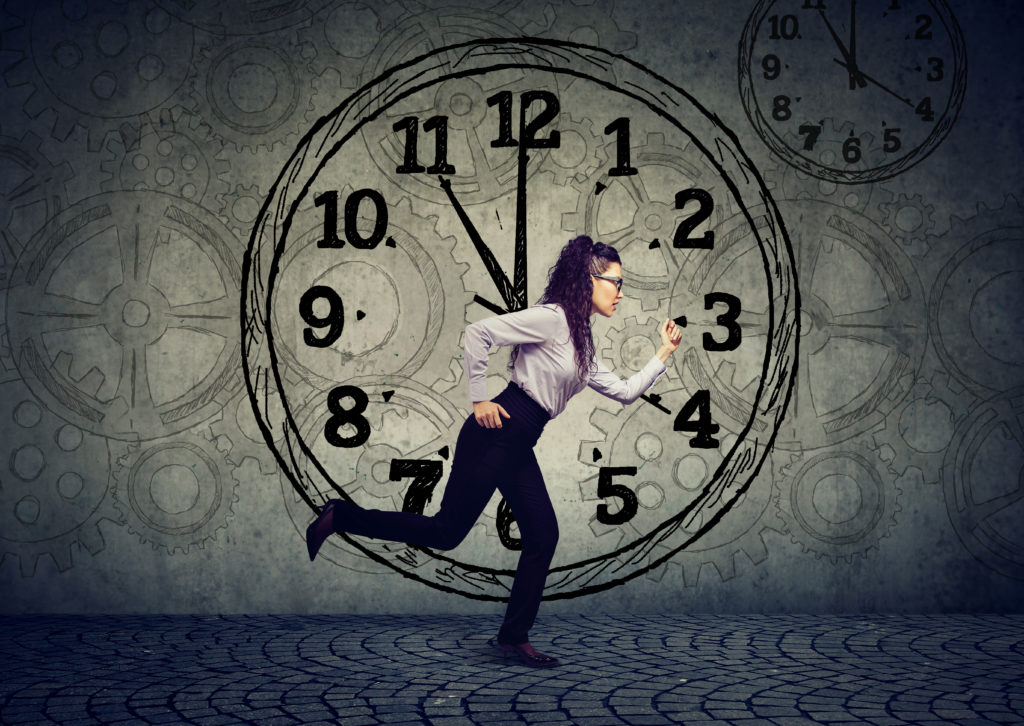 harder can employ. And it takes the concept of “Showtime” to a whole new level.
harder can employ. And it takes the concept of “Showtime” to a whole new level.
From the day he put his Nike’s away, Magic’s M.O. was to show up an hour before meetings, prepped and ready to go. Having sat through hundreds and hundreds of job interviews and auditions over the years, you can learn a lot about someone’s approach and work ethic by when and how ready they are when they show up.
How might this translate to radio? As my old friend Alan Burns used to say, TSP = TSL. That is, time spent prepping equals time spent listening.
And that’s true. But being early might also mean showing up at that next remote an hour early to hang out with the car dealer sales folks, the franchise manager of the phone store, the concert promoter, the area manager, and other local merchants that control where dollars are being spent.
Plus, on-air talent with strong advertiser relationships are least likely to face the guillotine the next time there’s a round of cuts.
As a Michigander myself, I got to follow Magic through his journey from Lansing’s Everett High School to the Michigan State Spartans, and into the NBA where he led the Lakers to five championships.
Here’s a few extra lessons he can teach every radio personality about “what’s next?” and how to attain it:
5. Leverage your celebrity
As a fledgling business person, Magic Johnson had something that most entrepreneurs don’t – celebrity. People love to hang out with accomplished 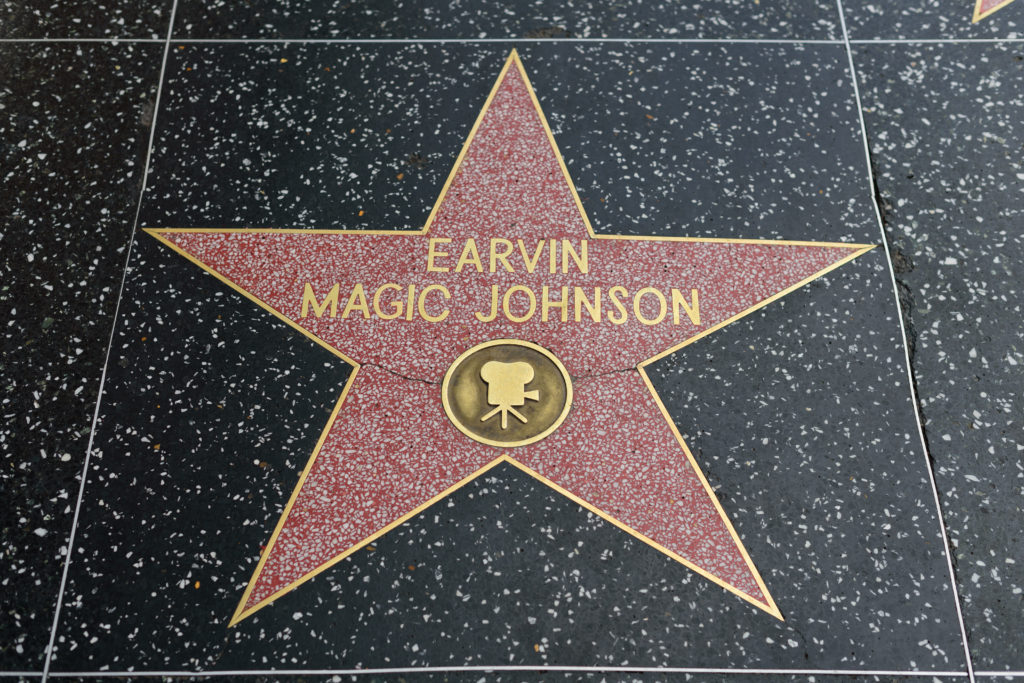 famous people, whether they’re on the court or behind the mic.
famous people, whether they’re on the court or behind the mic.
When Magic Johnson invited all those movers and shakers to lunch, do you know how many were too busy to take him up on the offer?
None.
Fame opens doors, it creates bonds, and it enhances relationships, often taking them to a higher level.
As radio personalities, you have local celebrity and community recognition. Use it.
6. Overcome your insecurities
One thing radio personalities often bring to the table is fear of failure. In that way, they’re no different than the rest of us. Sadly, there’s a palpable sense of angst and insecurity that emanates from the air studio whether we’re talking Boston or Boise.
Getting over that emotional baggage is a critically important element in experiencing success in those next career phases. When you analyze the post-radio careers of stars like Ryan Seacrest, Howard Stern, Jimmy Kimmel, Dave Ramsey, and others, you’re looking at people who experienced the same tough road, the same bad advice, and the same questionable management decisions part of being in radio.
And while they may be as insecure as anyone in the business, they’ve believe in themselves and their talent, whether it’s connecting with audience or winning in business outside of radio.
7. And a cool nickname doesn’t hurt
Everyone in radio knows this, too. Earvin Johnson, Junior was just another kid from Lansing who could shoot the rock. But the first time you heard someone call him “Magic,” you perked up and started looking at this guy.
The name came after a Lansing State Journal reporter watched Magic play one of his early games at Lansing Everett. And in the paper the next day, “Magic” was the way he was referred to in the story. Earvin Johnson realized the value of a great nickname, and did nothing to discourage others from calling him “Magic.” And of course, it stuck.
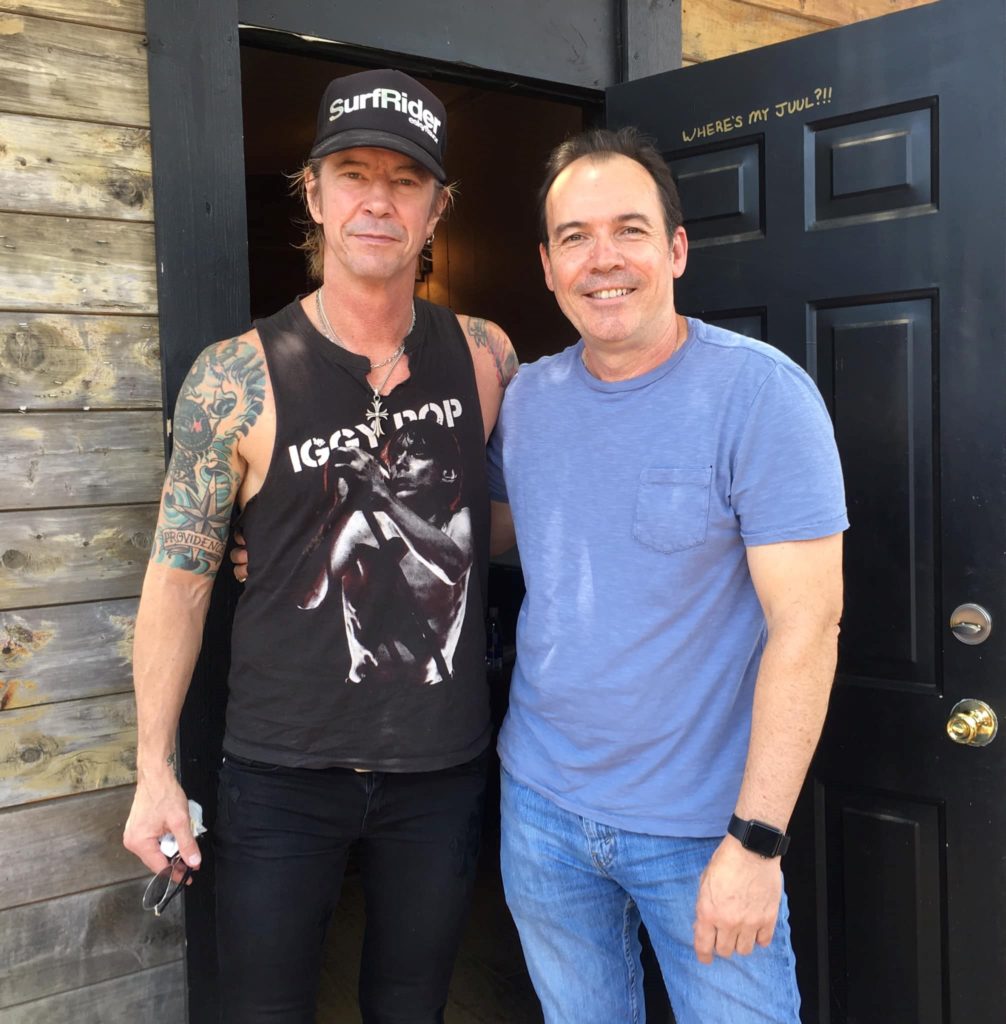 Many of you know LA Lloyd, PD and newly minted morning guy at the legendary KLBJ-FM in Austin. So how did he get the nickname?
Many of you know LA Lloyd, PD and newly minted morning guy at the legendary KLBJ-FM in Austin. So how did he get the nickname?
The late Chris Corley dubbed him “LA” after Lloyd moved to WROX in Norfolk from Los Angeles. The handle stuck. It has become part of his signature, helping to set him apart from the hundreds of other rock jocks and PDs in the business. (Lloyd is pictured left with another nicknamed dude, Guns N’ Roses’ Michael Andrew McKagan, better known as Duff.)
The Hip-Hop community has made naming artists talent an art form. LL Cool J, Snoop Dog, and Eminem have 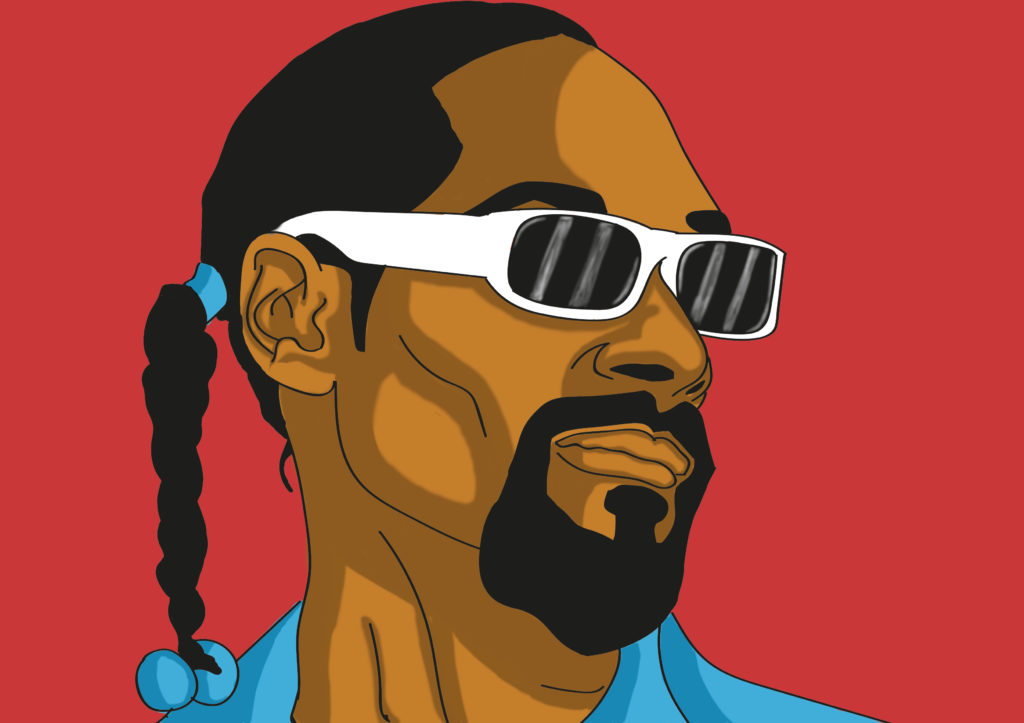 more “stick” than James Todd Smith, Calvin Cordozar Broadus, Jr., and Marshall Mathers III. Yes, those are their given names.
more “stick” than James Todd Smith, Calvin Cordozar Broadus, Jr., and Marshall Mathers III. Yes, those are their given names.
Like J-Lo or Coach K, nicknames and abbreviations are warmer, more accessible and fan-friendly, and yes, more memorable – all elements that also come in handy in the radio and business worlds.
Do you need a catchy handle to be successful – in or out of radio? Of course not. But the right nickname can enhance the brand even when those radio days end.
Pivoting from entertainment to business has its share of built-in speed bumps, sand traps, and roadblocks. But getting out in front of it, planning, and strategizing are all tools Magic Johnson has employed to make himself a winner on and off the court.
Or in the case of radio talent, in and out of the air studio.
- Media And Technology In 2025: Believe It Or Not! - April 18, 2025
- In Radio, You Just Never Know - April 17, 2025
- The Secret To Making A Great Podcast (And Great Radio) - April 16, 2025




This is a FABULOUS article and should be mandatory reading for every aspiring broadcaster.
Very much appreciate that, Dick. Glad you enjoyed it.
Actually, no one likes scones.
Except apparently Larry David.
Fred….your nickname would be??
Having a built-in one like “Biv” makes mine easy…..
So as PD at WRIF, Mike Mayer (and others) started calling me Jake the Bake, apparently in reference to my anger when the radio station got screwed (IMO). I have no idea how THAT got started. It was often shortened to Jake.
And some have told me my Twitter handle – @fnjacobs – has been an invitation for clients and others to refer to me as Effin Jacobs.
I like Magic and Biv better.
Larry David loves scones. But none of his friends do. That’s why his “spite” coffee shop is bound for failure!(and also makes the plot more fun!)
Great piece, Fred!
I loved that first episode with Mocha Joe, and the discussion about what makes for a good scone. Obviously, Magic Johnson could care less. Thanks, JC.
Thought I knew everything about Magic. Clearly not. I was in grad school at Michigan State during Magic’s sophomore year. And i’m telling you that sports atmosphere was indeed “magical”. Thanks for the insights. Even this old dog can learn a couple of new tricks.
We all can, Tim. That was indeed a great time for MSU and Michigan. And the Magic vs. Bird head-to-head competition that started in their college careers and carried over to the pros formed one of the great rivalries of all time. Thanks for the comment.
This is such great advice. Every time I got fired, I landed on my feet by leveraging the experience and relationships from my former station. I did indie record promotion, produced street festivals and even sold for a short time, bringing some of my favorite clients with me to other opportunities. When you move around the country a lot for your job, its hard to feel a sense of community anywhere you go. But its worth the time and effort, not just for future opportunities but to truly connect with the people who love you from afar.
Great blog Fred. My former boss Virgil Thompson at 99.5 KISS in San Antonio told me to consider changing my name due to the Spurs fans hate for the Lakers. I disagreed and the San Antonio listeners and fan base is just as strong as Austin in regards to social media and anytime I visit their city to cheer for the Spurs in the modern era.
Glad you stuck to your guns, LA. Every jock would love to have a great handle like yours!